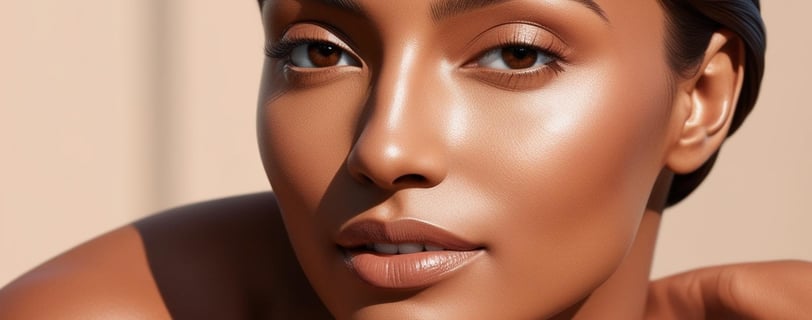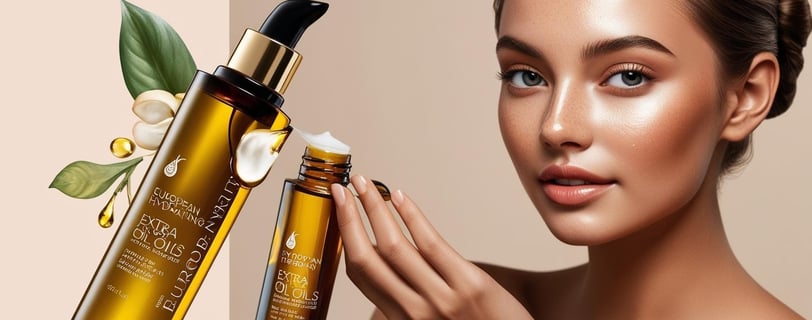Essential Hydration Tips for Healthy Skin
Discover the importance of hydration for healthy skin. Learn how your skincare routine can replenish moisture, enhance elasticity, and reduce fine lines for a radiant glow. Explore effective hydrating skincare ideas to achieve the dewy complexion you desire.
SKIN CAREBEAUTYHYDRATING
11/15/20244 min read


1. Start with a Hydrating Cleanser
The foundation of any skincare routine is cleansing, but many cleansers can strip the skin of its natural oils, leading to dryness. Look for a gentle, hydrating cleanser that replenishes moisture while removing impurities. Creamy, milk-based cleansers or oil-based ones are ideal, especially for dry or sensitive skin types. Ingredients like glycerin, hyaluronic acid, and ceramides are great for providing that extra hydration boost.
Pro Tip: Avoid hot water while cleansing—it can dehydrate your skin further. Stick to lukewarm water to maintain your skin’s moisture balance.
2. Use a Hydrating Toner
Toners are often overlooked, but they can add an extra layer of hydration to your skin, prepping it for better absorption of serums and moisturizers. Choose a toner that contains hydrating ingredients such as aloe vera, rose water, or hyaluronic acid. These ingredients not only soothe the skin but also act as humectants, drawing moisture into the skin from the environment.
3. Incorporate a Hyaluronic Acid Serum
Hyaluronic acid is a game-changer when it comes to hydration. It has the ability to hold up to 1,000 times its weight in water, making it one of the best ingredients for hydrating skincare. Applying a hyaluronic acid serum after toning can lock in moisture and plump up the skin, reducing the appearance of fine lines and giving you that youthful, bouncy skin.
Pro Tip: Apply your hyaluronic acid serum on damp skin to maximize its hydrating effects. The moisture from your toner or mist will give the serum more water to bind to.
4. Layer with a Hydrating Moisturizer
No skincare routine is complete without a moisturizer. Opt for a product that contains hydrating ingredients like squalane, shea butter, and ceramides. These not only hydrate the skin but also help to repair the skin’s natural barrier, locking in moisture for the long haul. If you have oily or acne-prone skin, choose a lightweight, gel-based moisturizer that hydrates without clogging pores.
5. Boost Hydration with Facial Mists
Facial mists are a quick and easy way to add hydration throughout the day. Look for mists containing hydrating ingredients like cucumber extract, rose water, or glycerin. You can spritz your face after applying your makeup or even during a midday slump to give your skin a refreshing moisture boost.
Pro Tip: Keep a hydrating mist in your bag for on-the-go hydration, especially during the colder months when indoor heating can dry out your skin.
6. Include Overnight Masks in Your Routine
Overnight masks are a fantastic way to give your skin an intense hydration treatment while you sleep. Look for hydrating masks that contain ingredients like hyaluronic acid, aloe vera, or honey. These will deeply moisturize your skin and help it recover from environmental stressors like pollution or UV exposure.
Pro Tip: For an even deeper hydration boost, apply your regular moisturizer first and layer the overnight mask on top. You’ll wake up with soft, glowing skin.
7. Don’t Forget About Eye Creams
The delicate skin around your eyes can be one of the first areas to show signs of dehydration. Using a hydrating eye cream can help prevent fine lines, puffiness, and dark circles. Look for products with ingredients like peptides, hyaluronic acid, or caffeine, which can plump and brighten the under-eye area while providing deep hydration.
8. Use Hydrating Oils for Extra Nourishment
Facial oils can be a great way to lock in moisture, especially during colder months. Oils like jojoba, rosehip, and argan oil are lightweight and easily absorbed, making them suitable for most skin types. You can mix a few drops into your moisturizer or pat them on as the last step in your routine to seal in hydration.
Pro Tip: If you’re worried about oils being too heavy for your skin, use them as part of your nighttime routine to allow them to absorb fully while you sleep.
9. Protect Your Skin with SPF
Hydration is not just about moisture—it’s also about protection. Sun exposure can dehydrate the skin and cause premature aging. Using a broad-spectrum sunscreen with hydrating ingredients, like aloe vera or glycerin, can protect your skin from harmful UV rays while keeping it moisturized throughout the day.
10. Hydrate from the Inside Out
While topical treatments are important, don’t forget to hydrate from within. Drink plenty of water throughout the day, and eat water-rich foods like cucumbers, watermelon, and oranges. These will help keep your skin hydrated from the inside, complementing your skincare routine.
Achieving hydrated, glowing skin doesn’t have to be complicated. By incorporating these hydrating skincare ideas into your routine, you can ensure that your skin stays nourished, plump, and radiant. Remember, consistency is key, and with the right products and practices, you’ll see noticeable improvements in your skin’s hydration levels.








